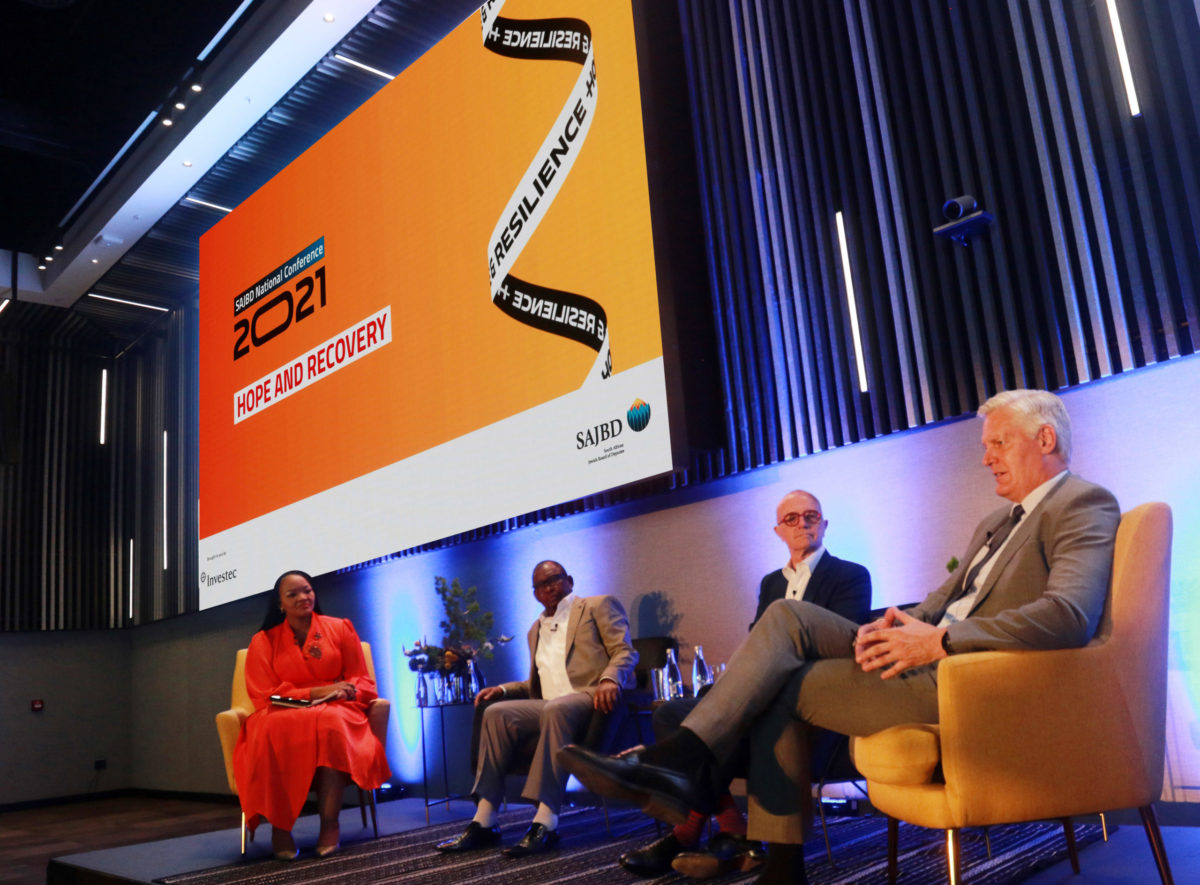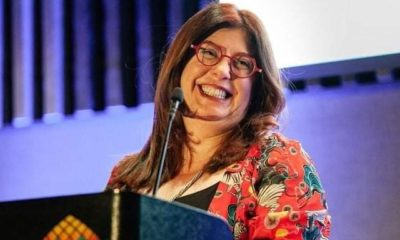
Community

Big names, big conference, big hope for recovery
We can’t talk about South Africa’s recovery without talking about Eskom, we can’t talk about Eskom without talking about the government, and we can’t talk about the government without talking about the judiciary.
This was the notion award-winning broadcast journalist Cathy Mohlahlana used to start the panel discussion during the 2021 South African Jewish Board of Deputies National Conference last Sunday, 17 October.
Mohlahlana moderated the discussion between Eskom Chief Executive Andre de Ruyter, Finance Minister Enoch Godongwana, and advocate Wim Trengove on the paths of hope and recovery in their respective fields.
De Ruyter painted a grim picture of the national electricity provider. “Eskom is a technically insolvent business that’s failing its customers on a more or less frequent basis with this phenomenon called load shedding, with capacity shortages beset by the legacy of corruption, and with old, unreliable plants. It’s difficult to spin a story of hope from that set of facts,” he said.
De Ruyter is encouraged by the fact that South Africa is endowed with some of the best wind and solar acreage in the world. “Our worst wind and solar acreage in South Africa is significantly better than the best in Germany. If the Germans can make the transition to renewable energy and invest in wind and solar, surely so can we.”
Mohlahlana asked De Ruyter if Eskom could provide load shedding timetables so South Africans could start making plans for the upcoming municipal elections and December holidays.
“The Eskom system has a way of keeping me humble,” he responded. “As soon as I make a forecast, I’m proven wrong.”
Eskom’s system is old and has endured a hard life, been poorly maintained and, in some instances, suffered abuse by being run much harder than the international norm,” De Ruyter said.
“Therefore, our proposed solution isn’t to try and fix this old car,” he said. “Our proposal is to ensure that there is a transition in our generation technologies.”
He expressed concern about a recent report that identified South Africa as having double the global average carbon emissions and being the largest emitter of sulphur oxides in the world.
Godongwana is concerned about the state not knowing the results of its own actions. “It’s all very well saying that they have given so many injections for children, but what we want to know is the mortality rate. Checking outcomes is the key thing we want to do now. Has the money spent achieved the desired outcome?”
During the pandemic, the state allocated R500 billion to set up recovery programmes that would help to cushion certain sectors of the economy against the impact of COVID-19. According to the Institute of Social Justice, only about R134 billion of that has been spent.
“Most of that money is in parliament and in publicly legally appropriated forms of adjustments. So, if it wasn’t legally appropriated forms of adjustments, it will be easy to say that it doesn’t exist.”
The lesson Godongwana takes from COVID-19 is that people and businesses in South Africa worked together without a single document being signed on how to work together. “That in itself shows that there is positive commitment among South Africans. The key question for us is how we channel that positive commitment in the right direction.”
Another positive, according to Trengove, is how the Constitution and the rule of law have evolved in this country.
A couple of decades ago, many parts of the population were sceptical or hostile to the Constitution. They regarded it as a foreign, liberal import unwelcome in Africa, according to Trengove. “I know that sentiment is still around, but the Constitution has been far more firmly entrenched and accepted by all South Africans over the past two decades,” he said.
As for the rule of law, the government launched what Trengove described as “a concerted attack on the judiciary” 10 years ago. It did this by announcing a review of the impact that the judgements of the Constitutional Court and the Supreme Court of Appeal had on the transformation of society.
Trengove recounted how senior political party officials and ministers went around making comments like, “When people go to the Constitutional Court, it’s merely to undo the government’s transformation of society.”
These weren’t just lone voices. “They were officially backed up by the government’s attack,” said Trengove. “But that attack failed, and in the past decade – the decade of state capture – the courts have prospered. The judges have asserted themselves, the rule of law, and the supremacy of the Constitution.”
However, the Judicial Services Commission (JSC) has failed South Africa in exercising discipline and in appointing judges, said Trengove.
“We have always had a range of judges, ranging from hopeless to brilliant, and that’s so in every society. But it’s important that we maintain a core of smart judges who are confident and capable. Frankly, the JSC hasn’t consistently given us those judges.
“It has, for instance, failed to appoint brilliant people – such as Jeremy Gauntlett, David Unterhalter, and Geoff Budlender. There is absolutely no rational explanation for the failure to appoint people of that kind. And it’s not an issue of racism. They have appointed many other white male judges.”
To Trengove’s mind, the lack of brilliant judges can be explained by “a resistance to intellectualism” and the identification of strong lawyers as “potential troublemakers”.
In spite of the gloom, people should stay in South Africa, Trengove said, because the rule of law is alive and well. Godongwana predicts that tackling crime is eventually going to be government’s top priority, and De Ruyter said there shouldn’t be load shedding over December as the “little lights” on Christmas trees consume very little electricity.











Paula Levin
October 27, 2021 at 7:16 pm
This headline is outrageous. Big hope?